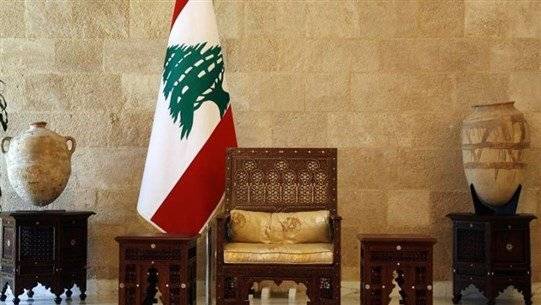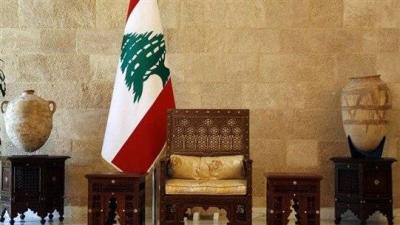As discussions led by American mediator Amos Hochstein regarding maritime border demarcation with Lebanese officials have yielded very positive outcomes, no information has been disclosed by any official about what was agreed upon in the Baabda Palace meeting. We await Hochstein's expected return to Beirut in two weeks, bringing Israeli responses to Lebanese demands. Meanwhile, the cabinet formation file has remained stagnant, with conversations around this issue appearing redundant, indicating that all parties involved have resigned themselves to the reality of maintaining the current government in a caretaker capacity.
The country is now nearing the constitutional deadline for electing a new president, closing off any discussions about forming a new government for less than three months. This has been reflected in the lack of enthusiasm from the designated Prime Minister Najib Mikati, who has made no proposals aside from the government composition submitted to the President during his first visit following consultative parliamentary sessions with various political blocks.
While the government file is overshadowed domestically, the external community also seems to have lost interest in this matter. Though Lebanon is not a priority on the global stage, it has entered a phase of quiet exploration regarding the presidential election. Several Arab and foreign diplomats in Beirut have started exploratory rounds and preparing necessary reports for their countries concerning the political climate post-President Aoun's departure from the Baabda Palace next fall.
Since electing a president in Lebanon is linked to regional and international factors, what is happening internally does not have a national impact on this process. It is possible, overnight, to agree on a new presidential candidate if international interests align, allowing that candidate to be imposed on the political class in Lebanon and acceptability from the majority of forces.
The ambassadors involved in the presidential elections in Lebanon are urging Lebanese officials to avoid falling into a presidential void amidst a government limited to caretaker responsibilities, especially under the current political division. Reaching such a stage could have severe consequences, particularly since the earlier international interest is no longer at its previous level. Current global developments, especially regarding Russia and Ukraine or US-China relations, have reached a boiling point, relegating Lebanon to the bottom of the daily agendas of global decision-makers. This means that if a presidential vacuum occurs, Lebanon will be left to its fate, making it difficult to predict the country's situation during such a phase.
According to political observers, an agreement on maritime border demarcation would broadly open avenues for Lebanon to transition from the current downslide into a phase marked by relative stability, positively impacting all facets of political, economic, and financial life. Achieving this goal could lead some nations to reconsider their dealings with Lebanon, which could benefit greatly in arranging its internal affairs and regaining its role on both Arab and international levels.
Thus, these observers place significant importance on the shuttle rounds conducted by the American mediator, who has comprehensively heard the Lebanese demands and similarly from the Israeli side. He is now in the final phase of appraising both parties' demands, paving the way to propose a solution during the next visit. If this solution meets the anticipated acceptance, signing the demarcation would become essential. However, if it does not, this may prolong Hochstein's mission or lead to inevitable confrontation since the margin for maneuvering is no longer acceptable, and time is tightening daily, especially given Europe's need for gas before winter.
Lebanon refuses to accept less than its rights and rejects the continuation of indirect negotiations indefinitely. Although Lebanon considers this moment to be its only salvation from its crises, Israel, along with the US and Europe, finds itself cornered regarding gas extraction, positioning Lebanon to obtain its rights despite Israeli opposition. In a different scenario, Washington and Tel Aviv would have delayed this matter, and Lebanon's waiting period to extract its rights from its waters would have been very lengthy.
Regarding whether we are in a race between relief and explosion on this issue, observers are quick to state that positive atmospheres are advancing significantly, leading them to assert that the possibility of heading to war is exaggerated.




